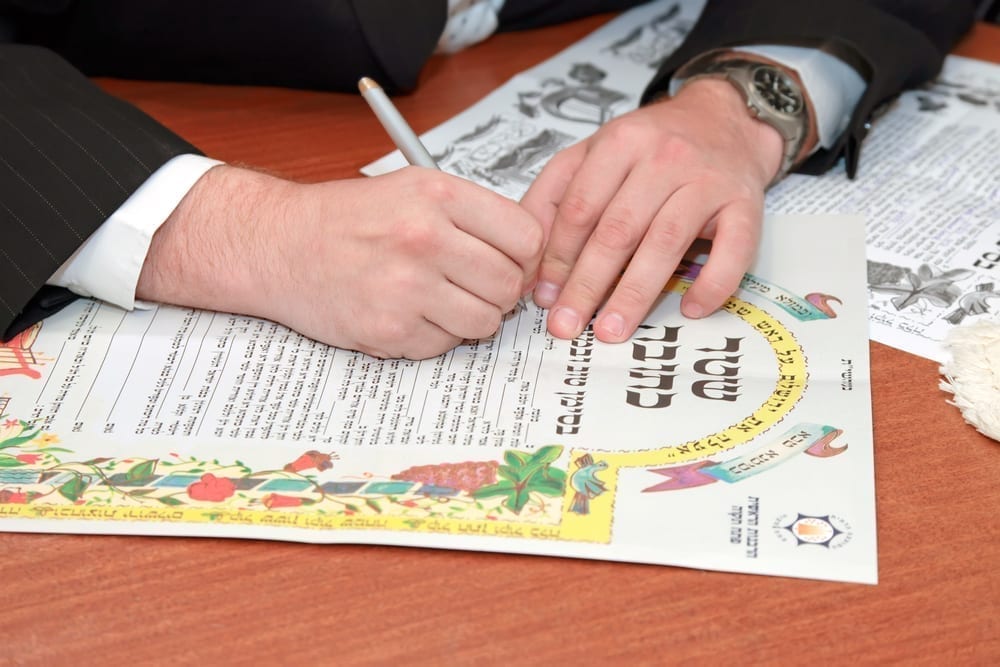Minchah is early now, and into the shul from the street blow the careworn and the bedraggled, the humble and the successful,the everyman and—my favorite Jewish archetype—the luftmentch. From far-flung places we come together to talk to our G-d, to chap a Minchah, to open a sefer.
No anthropologist will ever be able to explain the mood and the bonding that takes place at these winter evening services, where because of the early darkness, people daven in shuls far from their usual haunts. They are at once diffident and assertive, even overly familiar. A man in a dusty hat hesitantly, then more firmly, approaches the amud. “I have yahrzeit,” he says, winding a thin gartel around his middle. He places his hat on the bench and reaches for his tallis.
“Leave the hat on,” someone tells him. “That’s the minhag here.”
He waits patiently, noting that there are three minutes left until Minchah. Besides, there aren’t enough people for a minyan. “Don’t worry,” the man next to me says, still wearing his raincoat. “There will be plenty of people.”
I take it he’s a regular here; at least he acts like one. He has a round Jewish face, a widow’s peak, and although he is plump, he somehow looks hungry. I take him to be the resident luftmentch in this minyan. I imagine that he has stumbled into shul from some business “assignment” that has taken him to this corner of the city, dreaming and scheming about ways to make a killing.
In fact, I think I recognize him from years ago. I remember now. I once overheard him engaged in that ancient Jewish pastime: counting other people’s money. What he would do with Reichmann’s money! This was back in the early 1990s, when the Reichmanns and many other Jewish millionaires were in hot water. These super-gevirim, the contemporary Rothschilds and Montefiores, although they may live on other continents, are never remote to the men of tumbledown shtieblach the world over. “They” are part of “us.”
This man, younger then and perhaps more vital, sat in a corner and formulated advice about the best way to handle the crisis. If he were Reichmann, he asserted, he would sell all his holdings, Canary Wharf, Moscow, and then reorganize the whole portfolio and sell it to Romania—with a buy-back clause, something like a reverse mortgage, which would float all the yeshivos in the world for 20 years. That’s what he would do, all right.
I noticed that his hands were soft; menial work was not his bag. He lived a life of the mind.
What qualified this gentleman to give advice? Why, Moshe the luftmentch had once—once, mind you—been riding high. If only things had turned out differently. His brother-in-law had cut him in on a deal. A deal! He put up $50,000 for him to participate in a scheme to buy a shopping center somewhere in Illinois. It was guaranteed to double overnight. This was back when Bill Clinton was president. Boom times. But something happened, as it always does.
This man isn’t a shlemazel. A shlemazel gets nothing, but the luftmentch…he manages to get something. The brother-in-law “forgot” to enter his name on the documents. The brother-in-law himself was only a minor player in the deal and he too was closed out, but not before pleading, cajoling and issuing a series of mild threats. Out of “generosity,” the gang of big boys (the five who had invested $5 million apiece) got together and gave him and the brother-in-law $100,000 each for their trouble—$100,000! A plain Jew who makes a living “from air” doesn’t get to see such money, at least not before Moshiach comes.
Moshe, the schemer, the dreamer, is a little bit a shammes, a little bit a matchmaker, and he sells aravos in the season. For long centuries, Moshe will tell you, he and his ancestors were “forced” into poverty; his father was a tailor from Lodz, and he too was involved in “textiles.” But above all, he has bitachon.
I confess I looked at him askance, but I checked myself. Was this man before me the luftmentch of old, a man of great skill who darted about, seizing on almost anything, making customers and deals appear out of “thin air,” selling with a mixture of pluck and hypnotism? Was he a man who, despite his best efforts and fervor, most often failed? Or was he the kind of person who, with that precious, peculiar mixture of destructive delusion and health that make up the life of a human being, masqueraded “bitachon” as a virtue but used it mainly as an escape from reality? We would soon see.
The rabbi walks in. He carries a Mishnah Berurah. He is on the young side, modern enough, pants with a sharp crease, wingtips, clean-shaven save for a mustache, aviator glasses. I see a stack of Mishnah Berurahs around him. He will give a Mishnah Berurah shiur between Minchah and Maariv. Judging by the volume he is carrying and the bookmark, it will be the siman on v’sein tal u’matar.
There are seven of us now. The ancient cast-iron radiators have begun to clank. It’s November, the beginning of winter. Outside there is a mist turning into a thin rain. Looking out the back window, I see the neon lights of stores, a dry cleaners, a hardware business, a non-kosher pizza shop.
It’s time for Minchah and we’re still missing three men. I look around. It’s an achievement to have as many as we have this early in the day. There is something unique about a certain people talking to a G-d Who hasn’t spoken to us directly for 3,000 years, yet here we are.
The luftmentch volunteers to go out and schlep some people inside. He asks me to join him. “You know,” he tells me, “time was a man couldn’t count on a minyan. Everyone was working somewhere, but now in the days of the Internet, people could be working anywhere.” He sighs. “There are so many opportunities, but one still needs mazal. That is why I always buy a lottery ticket.”
His pants pockets bulge with bank slips and scraps of paper, a lottery ticket among them.
“Have you ever won anything?” I ask him.
“No,” he says sheepishly as we trudge down the avenue to snare mispallelim.
“Finding someone for a minyan is like a parnasah,” he says. “Someone is always buying what we’re selling. It’s the way the world was made. You know you’re going to get a minyan, even if it has to come from the air. You just know it.”
0 25 4 minutes read





